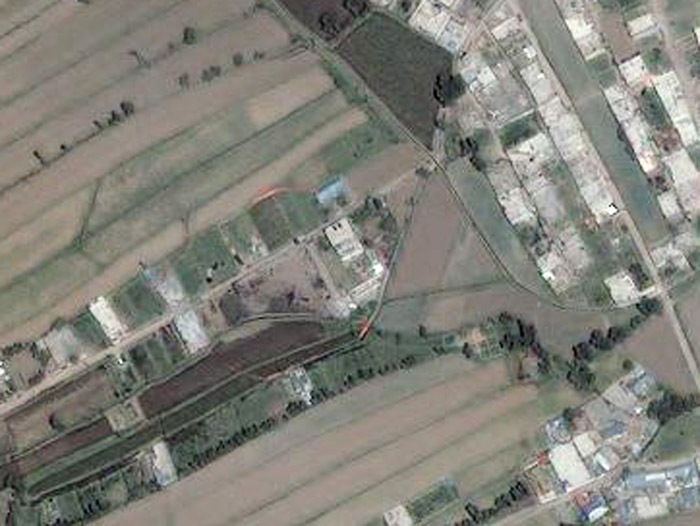ABBOTTABAD, Pakistan — When a woman involved in a polio vaccine drive turned up at Osama bin Laden’s hideaway, she remarked to the men behind the high walls about the expensive SUVs parked inside. The men took the vaccine, apparently to administer to the 23 children at the compound, and told her to go away.
The terror chief and his family kept well hidden behind thick walls in this northwestern hill town they shared with thousands of Pakistani soldiers, but glimpses of their life are emerging — along with deep skepticism that authorities didn’t know they were there.
It’s not clear why bin Laden chose Abbottabad as the place to stay, but at least two other top al-Qaida leaders have sheltered here on its bustling streets dotted with buildings left over from British colonial days. These days it attracts tourists, but is known mostly as a garrison town.
He found it safe enough to stay for up to six years, according to U.S. officials, a stunning length of time to remain in one place right under the noses of a U.S.-funded army which had ostensibly been trying to track him down. Most intelligence assessments believed him to be along the Afghan-Pakistan border, probably in a cave.
Construction of the three-story house began around seven years ago. Aside from its size, it doesn’t stand out from the others in the neighborhood, where conservative residents are guard their privacy fiercely. The walls are mold-stained, there are trees in the garden and the windows are hidden.
Those who lived nearby said the residents rarely strayed from the house, and most of the neighbors were not aware foreigners were living there.
Khurshid Bibi, in her 70s, said one man living in the compound had given her a lift to the market in the rain. She said her grandchildren played with the kids in the house and the people in the compound gave them rabbits as a gift.
But the occupants also attracted criticism.
“People were skeptical in this neighborhood about this place and these guys. They used to gossip, say they were smugglers or drug dealers. People would complain that even with such a big house they didn’t invite the poor or distribute charity,” said Mashood Khan, a 45-year-old farmer.
Some residents recalled seeing two men the most often, who would occasionally attend a neighborhood gathering, such as a funeral. Both men were tall, fair skinned and bearded and described themselves as cousins from elsewhere in northwestern Pakistan.
Police officer Nazir Ahmad said officers visited hotels daily and got copies of passports of foreigners staying there. He says real estate agents had to inform police if they rented out property to a foreigner.
Abbottabad police chief Mohammad Naeem said the police followed the procedures always very strictly but “human error cannot be avoided.”
The government said in a statement that the 23 children and nine women in the house were “in safe hands and being looked after in accordance with law. As per policy, they will be handed over to their countries of origin.”
Reporters were allowed to inside the walls of the compound for the first time, but the doors were sealed shut and police were in no mood to open them.
Local residents showed off small parts of what appeared to be a U.S. helicopter that Washington said malfunctioned and was disabled by the American strike team as they retreated. A small servant’s room outside the perimeter showed signs of violent entry and had been briskly searched, clothes and bedding tossed to the ground. Its wall clock was on the floor, the time stuck at 2:20, when the U.S. team would have been on the ground in the early hours of Monday.
Like many Pakistani towns where the army has a strong presence, Abbottabad is well-manicured, and has solid infrastructure. There are street signs that tell residents to “Love Pakistan.” It also is known for its good schools, many of which were originally established by Christian missionaries.
Little girls wear veils while carrying Hannah Montana backpacks to school. Many houses in the outlying areas have modern amenities, but lie along streets covered with trash. Shepherds herd their flocks of sheep along dusty roads just a few hundred meters from modern banks.
It has so far been spared the terrorist bombings that have scarred much of Pakistan over the last four years.
“A lot of people are depressed right now,” said Atiq ur Rehman, 36, a health worker. “We are living with the army. It was clear in our mind, that we were safe because the army was protecting us.”
Send questions/comments to the editors.


